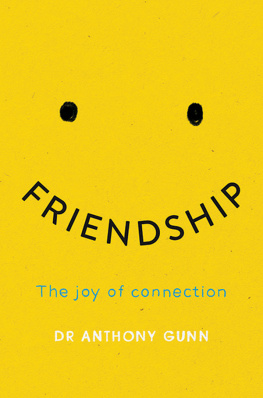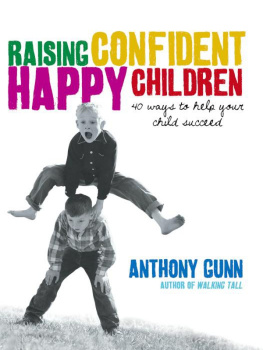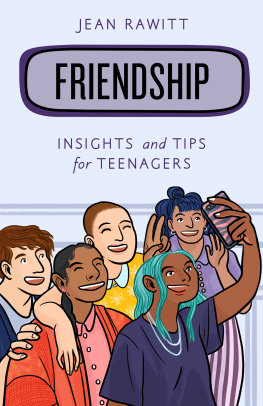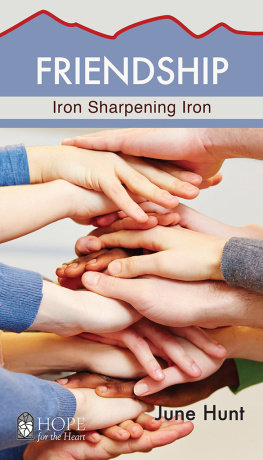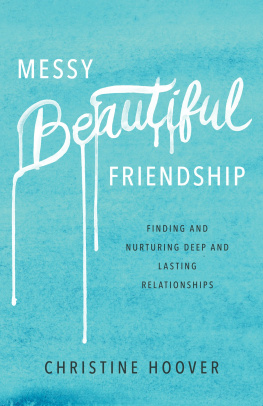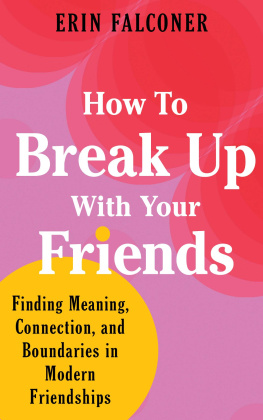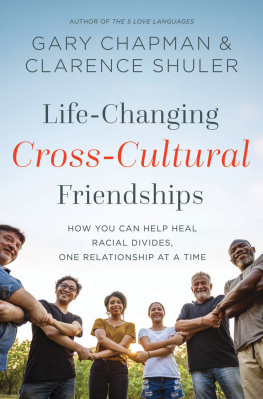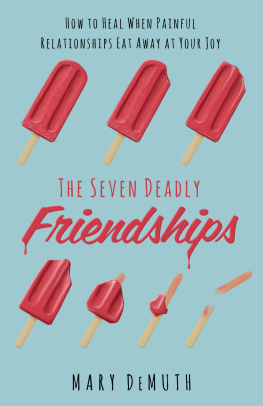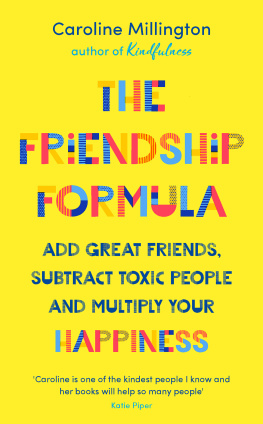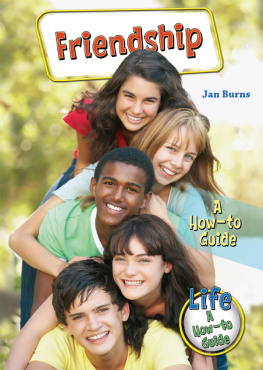To my close friends who I grew up with,
David Rixon, the Fordham boys
(David, Nathan and Trent),
and Shawn Chard.

Contents
If someone promised you either $100,000 or one cent doubled every day for a month, which would you take? Probably the $100,000, right? But one cent doubled daily for 31 days would equal $10.7 million! Our brains tend to look for the quick fix, but its small, consistent changes over time that produce the most gains. As you read the strategies in this book, focus on making small daily changes to your social life.
The best thing about the future is it comes one day at a time.
ABRAHAM LINCOLN
Why have friends? Research shows that people with an active social life are healthier, happier and live longer than those who are socially isolated. If you dont have friends, or you havent been investing enough time in your social life, then this book will give you tips to change this. Make friends! Your life depends on it.
Walking with a friend in the dark is better than walking alone in the light.
HELEN KELLER
The greatest danger to humans is other humans. This fuels our drive to get along with others and avoid being rejected. Its also why people often prefer to socialise online, behind the safety of a screen. When we remove the natural respect for others that comes with face-to-face interactions, were more likely to say things we wouldnt normally. Talking to people face-to-face may seem harder than interacting on social media, and a bit uncomfortable, but thats why its so healthy its exercise for our brains. Instead of sending a text or email, pay a visit in person. If this isnt possible, try a phone call. Yes, its harder, but youll feel happier. Go on, try it. I dare you!
Two roads diverged in a wood, and I I took the one less traveled by, And that has made all the difference.
ROBERT FROST
Humans are the most social creatures on the planet. If you want a pick-me-up, socialise. Try chatting to a shop attendant, visiting a friend or family member, or striking up a conversation with someone you dont often speak to, such as a neighbour or a work colleague. Have a short conversation with another person and notice the feel-good endorphins that your body creates. Its a natural high.
To live is the rarest thing in the world. Most people exist, that is all.
OSCAR WILDE
Another way to get an instant hit of endorphins is to help someone in need. Try small things, such as offering directions to someone who appears lost, letting someone go before you in the check-out line, or giving your seat on public transport to someone who needs it more than you. By helping others, youll also be helping yourself.
When you give yourself, you receive more than you give.
ANTOINE DE SAINT-EXUPERY
People become experts in their field by focusing on improving their weaknesses. Novices only focus on their strengths. When it comes to interacting with others, what areas could you improve on? Do you talk more than you listen? Are you pushy with your opinions? Are you too reserved? If youre feeling brave, ask a trusted person for their opinion. Find someone who will give feedback on your behaviours, not you as a person they need to be constructive, not critical. Looking at our weaknesses can be uncomfortable, but its the key to rapid improvement.
Its a rare person who wants to hear what he doesnt want to hear.
DICK CAVETT
From a young age, our loved ones teach us about trust, how to treat and be treated by others, and how to make friends. Were you encouraged to speak up about an issue, or to keep quiet and hold a grudge? What about venturing out of your comfort zones, such as going to new places and meeting new people? Whatever your social habits are, its likely youve learned them from your family. Take time to reflect. Ask yourself what social habits youve been taught and write them down. This simple exercise will help build your awareness about the way you interact with others. Knowing your history will help stop you repeating bad habits.
Those who dont know history are doomed to repeat it.
EDMUND BURKE
Its a common belief that money cant buy happiness. And research does show that, once our everyday living expenses are covered, extra money does little to increase happiness. However, money can increase happiness when its used to buy experiences, rather than possessions. Research shows that a holiday with loved ones will not only bring longer-lasting happiness than buying a new car, TV or lounge, but will also improve your relationships. This is because holiday memories last, whereas we grow accustomed to possessions. If you can afford to spend a little extra money, choose experiences, not things.
Happiness is determined by factors like your health, your family relationships and friendships, and above all by feeling that you are in control of how you spend your time.
DANIEL KAHNEMAN
Research shows that its not necessarily income that makes us happy; its the amount of money we have saved. People with savings are happier than those without, regardless of their salaries. Money saved is an unconscious confidence booster, guarding against unforeseen events. Seek trusted financial advice and establish a realistic savings budget. Having savings means one less thing to worry about, and the confidence this brings will translate to your social life, allowing you to be more present with those around you.
Its not how much money you make, but how much money you keep, how hard it works for you, and how many generations you keep it for.
ROBERT KIYOSAKI
Theres an old saying that says if you lend someone $20 and never see that person again, it was probably worth it. Lending money to family and friends is filled with risk for several reasons:
Paying back the loan is often not a priority.
Its awkward to ask for your money back.
Family/social gatherings can become uncomfortable.
Lending money can actually foster dependence instead of helping the person.
You might need the money yourself.
Saying no can be awkward, but not as awkward as a loan going bad. Look after your relationships leave money-lending to the professionals.
Before borrowing money from a friend, decide which you need most.
AMERICAN PROVERB
Its easy to talk, but harder to listen. Many people become anxious when interacting with others because they dont know how to hold a conversation. Its simple: ask questions, and listen to the answers. Instead of trying to teach people about you, focus on them. We can learn something from everyone.
We have two ears and one mouth so that we can listen twice as much as we speak.
EPICTETUS
Meeting someone new can cause anxiety. Take the focus off yourself by aiming to learn three things about the person you are talking to. For example:
Where are you from?
What do you do for work?
What are you passionate about at the moment?
Make an effort to ask questions when meeting people, and listen to the answers with genuine interest. Watch your likeability increase.
Questions are the breath of life for a conversation.
JAMES NATHAN MILLER
When people feel socially anxious, they often avoid eye contact. This can make it difficult for them to gauge how well they are interacting. Maintain eye contact with the person you are talking to. Avoid staring at them; break eye contact regularly by slowly blinking or briefly looking away. Practise with a trusted person, or video yourself talking in the mirror. Eye contact, when used correctly, is a valuable asset that helps build rapport. Avoiding eye contact can push people away.

